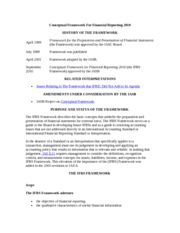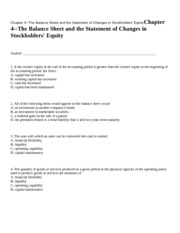Difference Between Subjective and Objective

If you hear someone say, “In my objective opinion,” for instance, they may be misusing the word, depending on what follows the statement. Objective language is used when reporting facts or describing events. For example, when writing a news article or a research paper, it is essential to use objective language. Subjective language is often used when expressing an opinion or arguing. For example, subjective language should be used to make your point when writing an opinion-based essay. The key to using subjective language is to ensure that your opinion is well-supported with facts and evidence.
Clinical records after asynchronous and synchronous e-learning … – BMC Medical Education
Clinical records after asynchronous and synchronous e-learning ….
Posted: Fri, 18 Aug 2023 14:57:42 GMT [source]
The statement above is based on opinions, not facts, making it subjective. That’s a subjective statement because what’s beautiful to one person can be ugly to another. In the first one, there is some opinion, but the primary focus is on speaking about skilled musicians. You might also be interested in our alright vs. all right explainer. In grammar, objective means referring to nouns or pronouns used as the object in a sentence.
Objective vs Subjective Writing: What’s the Difference?
If what you’re writing can be proven or disproven by evidence, it’s an objective statement. Likewise, if you include a reference to an study or an experiment, it is an objective statement. The difference between objective and subjective is related to the difference between facts and opinions. One glaring thing you might notice in objective pieces is the presence of data and numbers.
Objective means not influenced by personal feelings or opinions in considering or representing facts. If you’re looking at something subjectively, that means you’re using your opinions, feelings, or perception to shape your thoughts about that subject. In other words, subjectivity is influenced by one’s own emotions and beliefs and therefore varies from person to person. In subjective writing, the writer is free to make up their facts and present them in a way that furthers their argument.
Definition of Objective
Learning the difference between objective language and subjective language is a critical skill in school, the workplace, and other parts of life. Objective language helps you learn the facts so you can draw your own conclusions and form your own opinion on a subject. Subjective language is used to influence how you feel or to persuade you to take action or agree with the writer. Sources that depend on subjective language are not as trustworthy because they don’t provide verifiableDescribes something that can be proven to be true. Subjective statements are based on personal opinions and feelings, while objective statements are based on facts and evidence. To differentiate between them, ask yourself if the statement can be proven with evidence or if it is based on personal beliefs.
- Like many similar but different words, many English writers get these wrong.
- However, it can also be less credible and objective, as it is based on personal experiences and perspectives.
- As you can see, these sentences all express the writer’s personal opinion about a certain topic.
- Objective writing as opposed to subjective writing gives facts, data, and avoids personal biases.
That means, subjective writing describes things that cannot be measured with quantity. Objective statements define specific information that can be measured in quantity. “Favorite”, “good/bad” are qualitative words used in subjective writing.
Focus on the evidence.
Subjective means those ideas or statements which are dominated by the personal feelings, opinion, preferences of the speaker. It is an interpretation of truth or reality, from the speaker’s angle, that informs and affects the judgement of people and is always biased. It can be a belief, opinion, rumour, assumption, suspicion, that is influenced by the speaker’s standpoint. The sentence “It’s very cold outside” is a subjective statement, because how true this sentence is depends on personal opinions and experiences. Subjective writing is the language of perspective that is influenced by personal feelings. It aims to let the listener or reader know how the writer or speaker feels, thinks, or believes.
Something that’s truly objective has nothing to do with a person’s own feelings or views—it just deals with facts. When someone says “Objectively speaking,” they’re indicating that they’re going to give an unbiased assessment—not one based on their personal preferences. Subjective observation is centered on a person’s own mind and perspectives, as opposed to being general, universal, or scientific.
- Describing things with the use of adjectives counts as passing judgment.
- On the other hand, objective writing is fact-based and can be used to inform the reader about a specific topic.
- We’re here to clear all of that up by explaining what each word means and how each should be used.
All sides of an issue have a chance to present their own facts, and there are no biases. Since objective writing makes use of numbers, it is safe to say that it is accurate. Some subjective pieces make use of exclamation marks to convey strong emotions such as anger or joy. Also, subjective and feelings both contain the letter S, which you can use as an additional mnemonic.
Que 2. What are the Key Differences between Objective and Subjective?
In contrast, subjectiveWording that shows a writer’s feelings or opinions. For example, words such as feel, believe, and think are obvious signs that a writer is being subjective. Language focuses on the attitudes, values, thoughts, feelings, or beliefs of the person who is doing the writing or speaking. Subjective language reveals the perspectiveThe point of view from which an author considers a subject or issue. Of the writer and may not accurately describe the traitsThe specific parts of a person, place, or thing that distinguish it from another.
From The Desk Of Lady Gaga: Here Is Every ‘Gaga Memorandum … – vmagazine.com
From The Desk Of Lady Gaga: Here Is Every ‘Gaga Memorandum ….
Posted: Sat, 19 Aug 2023 14:30:13 GMT [source]
What one person considers “too sweet” is based entirely on their personal preferences. The cake might not be sweet enough for some and just right for others. Below are a few more examples of similar statements, but one is subjective, while the other is objective.
“Objective” vs. “Subjective” Examples
In contrast, the word objective means not influenced by the person’s opinion or personal feelings. Objective writing is typically simply the facts based on observation or analysis, not opinion. Subjective writing is based on personal opinions, views, experience and feelings while objective writing is fact-based and is built on proven Objective vs. Subjective Writing information, and data. Subjective information or writing is based on personal opinions, interpretations, points of view, emotions and judgment. It is often considered ill-suited for scenarios like news reporting or decision making in business or politics. Objective information or analysis is fact-based, measurable and observable.

Examples of objective writing are research papers, instruction manuals, and academic essays. These types of writing strive for accuracy and to create a foundation of knowledge. Below, we’ll explain what subjective and objective mean, and provide examples of each, so you can fully understand the difference between these words. The words “objective” and “subjective” have similar uses and contexts but very different meanings. Like many similar but different words, many English writers get these wrong.
Qualities of subjective writing
Objective writing can be more credible and reliable, as it is based on verifiable facts. However, it can also be less engaging and less captivating, as it lacks personal perspectives and emotions. When we say that something is subjective, we mean that it is based on personal opinions, feelings, or perspectives. In other words, it’s something that is influenced by an individual’s experiences and beliefs.

Keep in mind that those statements would still be considered objective even if they were false. For example, the sentence “The temperature outside is around 10°C” is an objective statement, because that statement will be equally true no matter who says it. Anybody in the world with a working thermometer could verify this statement.
They are based on observable phenomena and can be verified by others. Subjective vs. Objective is a crucial distinction to make when discussing any writing, particularly when it comes to academic and scientific writing. Subjective writing is based on opinion, perspective, and personal views, while objective writing is based on facts and evidence. The first sentence contains objective language and simply reports information from case studies without expressing a belief or opinion about the facts. The second sentence uses subjective language (unfairly discriminated against ) to make a statement that cannot be verified. The first sentence contains subjective language; the phrases increasing dependence and future success and the word endangers all express the writer’s opinion.
As a result, it’s useful for doctors to have objective tools to determine how ill people are, which don’t have results that vary from person to person. This sentence, a quote from a pathologist, argues that symptoms of diseases are somewhat subjective because they differ from person to person. The word objective describes information that’s based on verifiable facts. Objective truth can be verified by a third party, regardless of who the third party is.
Whether you’re studying times tables or applying to college, Classroom has the answers. Objective information is important in fields that rely on facts and evidence, such as scientific research, journalism, and law. Impress with clear, precise, and stylistically flawless writing instead. Writing tips and examples, best reads, cool tools, jobs, and friendly encouragement to do your best writing.
